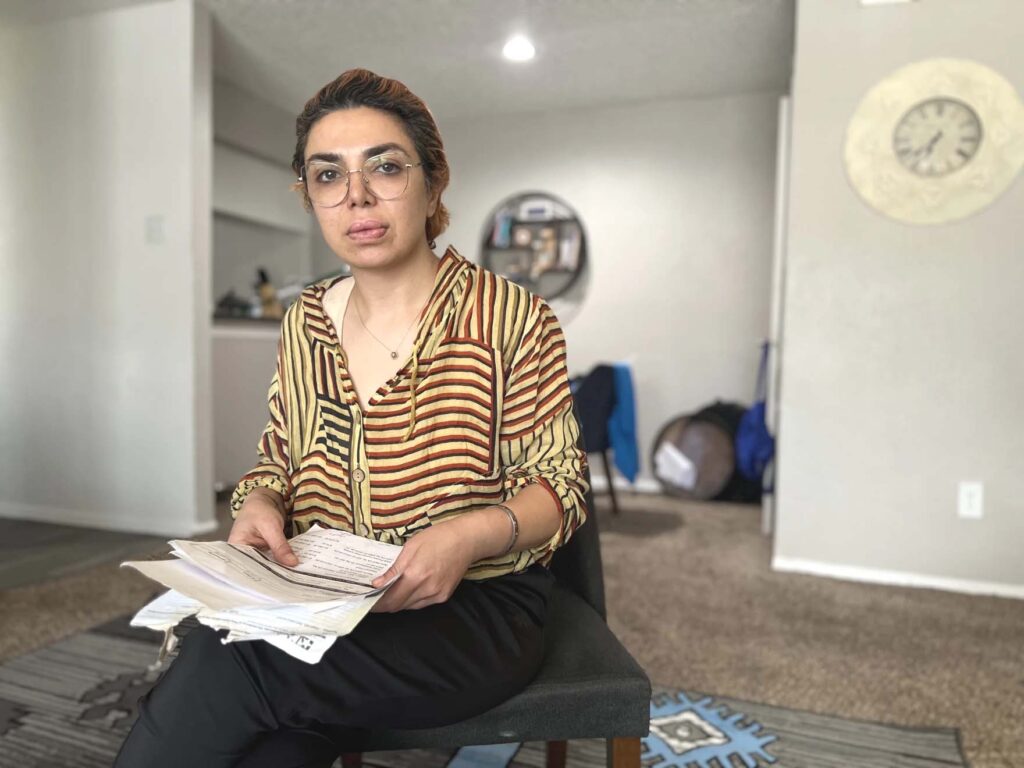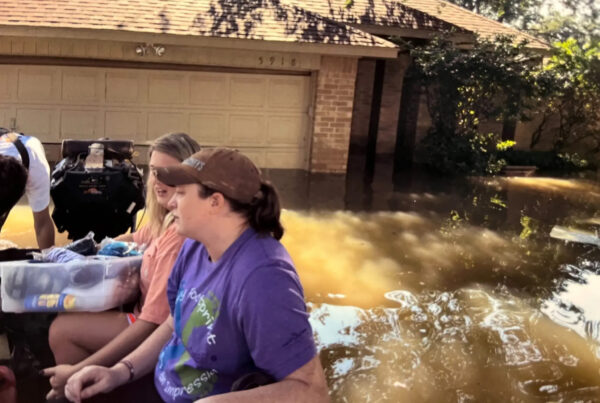From KERA News:
Yeganeh Bahraminejad sorts through a stack of papers inside her Dallas apartment. There’s a bill from the electric provider about an overdue payment — a reminder that she’s not sure how she’s going to keep up with all of her expenses.
The 40-year Iranian native landed in the U.S. in March and was excited to start a new chapter in the U.S. But in May, the organization that resettled her, Refugee Services of Texas, announced it was permanently closing after 40 years.
David McKeever, the agency’s CEO, said in a statement that RST was forced to close due to a severe budget shortfall, despite implementing an emergency plan to make up financial losses.
Weeks later, refugees who were being resettled by RST still have more questions than answers. Bahraminejad and other newcomers KERA talked to say they feel disillusioned and angry at what happened to RST.
“It’s not my problem that they don’t have the money,” Bahraminejad said. “They accept my case. If they don’t have the money, why [did] they accept new case[s]?”
Statewide plan for refugees
Other resettlement agencies around the state are taking on RST’s clients, but some say that process has been slow-going, confusing and frustrating.
Jeff Demers, State Refugee Coordinator at the Texas Office for Refugees, said in a written response that his office organized a task force in response to RST’s closure and that staff visited every RST office statewide to collect client case files.
He said TXOR is reviewing a total of 3,800 active client cases statewide as well as recently closed cases to identify ongoing needs and refer clients to refugee service providers.
“To date, we have successfully contacted nearly all Fort Worth and Austin clients and have initiated the referral process to agencies in these areas who have confirmed capacity,” he said. “We are diligently working through each case, according to urgency and region, so that every existing client is engaged.”
Finding a job
Bahraminejad said she’s in a somewhat better position than others because she understands and speaks English.
“I don’t need someone [to] help me,” she said. “I go everywhere [by] myself. No one translate[s] for me in a hospital or anywhere. But I just need help for my rent.”
Bahraminejad lives in a one-bedroom apartment that costs $1,080 a month. She recently found a job at a nearby Walmart, which she said she got after waiting five hours to speak with someone in charge.
“I just told him three sentences: I love this job. I need this job. And I am a woman, I’m responsible for what I promise to people,” she said. “And he gave me that job and I’m so, so grateful.”

Yeganeh Bahraminejad, 40, arrived in Texas in March. She’s one of hundreds of refugees resettled by Refugees Services of Texas, which has since closed. She and other former RST clients are angry and frustrated and feel they’re being ignored.
Stella M. Chávez / KERA News
In another Dallas apartment complex, a couple of Central African Republic men who fled the war in their country have been providing moral support for each other. Herman Besse, 35, came from a refugee camp in Cameroon in March. He expressed his dismay with the help of a French interpreter named Fernando.
“The help he’s received is not the way it should be happening,” the interpreter said. “They haven’t gotten much help from the services. They’ve been left a bit down, and they try to understand what’s going on.”
‘A dire situation’
Besse said he tried to enroll his 13-year-old son in school but had trouble. Now he wants to find a job but doesn’t know how because he hasn’t yet learned English. He said he thought someone with the resettlement agency would help guide him through that process.
“He’s saying he’s in a dire situation,” the interpreter said. “Sometimes he has to go and search for food in the garbage, and he sounds a bit desperate.”
Besse’s voice cracked as he spoke and his eyes teared up. He doesn’t understand why it’s been so difficult for him, he said, when he knows other refugees who’ve had a smooth transition.
His neighbor, Mahamat Issa, said he feels equally desperate and tears up when he describes his experience. The 36-year-old has a wife and three children.
“He doesn’t know what’s going to happen,” the interpreter said. “It feels like he’s been abandoned. He made an effort to contact someone and he’s waiting for something to happen.”
Demers, the state refugee coordinator, said each client will be individually contacted as soon as their file is under review, “to keep them informed and provide a singular point of contact to reach out with any issues or questions that arise.
“Our aim is that this consistency assures clients that they are heard and ensures that they understand each step of the process, so that they are empowered to access services as soon as possible.”














